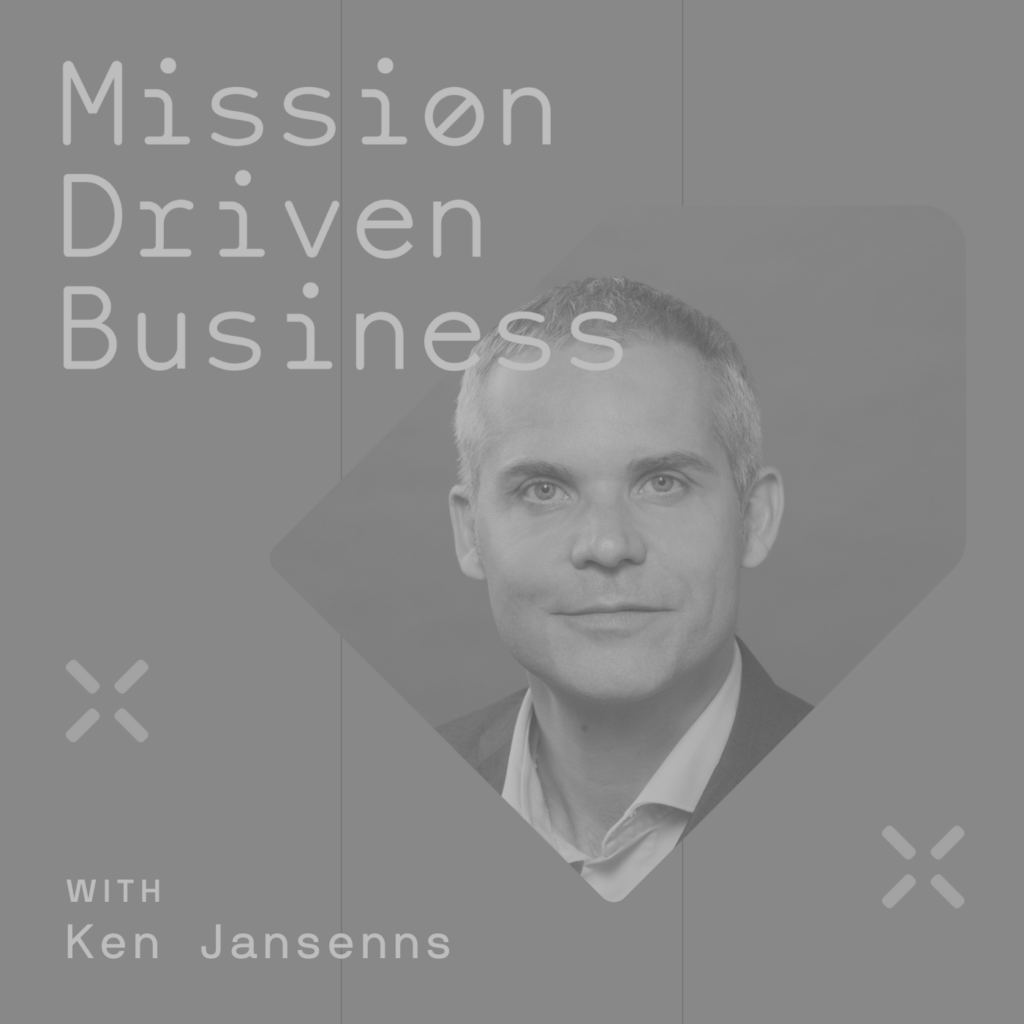Brian chats with diversity, equity, and inclusion trailblazer Ken Janssens. During his 25-year-long career at JPMorgan Chase, Ken co-founded and chaired the company’s LGBTQ+ Executive Council, championing diversity and inclusivity at the highest levels. He’s also the former Board Chair for leading LGBTQ+ Workplace Inclusion non-profit Out & Equal.
On the episode, Ken discusses his new venture, Windō, which aims to make corporate sustainability transparent and to connect young people with employers that share their values. He also shares his journey from activist leader to visionary entrepreneur and touts why establishing a clear mission and vision makes financial sense for companies.
Episode Highlights
Mission-driven businesses place purpose at their core.
Ken defines a mission-driven business as one that puts purpose at its core. He also pointed out that purpose is especially important to Gen Z employees, who are the first generation to place purpose over pay when finding an employer.
“Whilst a lot of companies have adopted purpose statements, there are many that still haven’t,” Ken said. “Purpose can rally an entire organization around something that is usually quite simple but very powerful.”
Keep it simple.
Ken co-founded Windō to connect young talent with value-aligned employers. Having such a simple mission statement has made it easy for him to recall and ensure his daily decisions are grounded in the company’s purpose.
“Our mission just rolls off the tongue, but obviously, you don’t just come up with that willy nilly,” he said. “You really think about it, but then it’s very clear. It grounds us and makes it easy to talk about what we’re about in one simple sentence.”
Use data to drive diversity.
While Windō’s data focuses on large companies, Ken says that small business owners can still take inspiration from some of the top performers. For instance, a company of any size can implement self-ID, which allows employees to disclose their demographic information to break down large data sets by diverse groups. Companies can then use the self-ID data to measure how employee satisfaction varies among different groups of people and, ideally, use the resulting awareness to improve year over year.
“I think every company is aiming for belonging, and that’s difficult to measure,“ Ken said. “This is a great way of doing that. You ask employees different kinds of questions and get the results by a diverse group, and you don’t guard the results as a secret when there’s work to do.”
Transparency builds trust.
The ultimate goal of sustainability reports is to build trust, according to Ken. However, you can’t have trust without transparency, commitment, and accountability. He also emphasized that potential employees know that increasing workplace diversity can be challenging and that progress isn’t always linear.
“Gen Z is okay with the numbers being low, but they want to see progress,” Ken said. “Moving the dial is hard, and sometimes you have a dip. It’s okay if they’re still in the grand scheme making progress.”
Resources + Links
-
The Big Leap: Conquer Your Hidden Fear and Take Life to the Next Level by Gay Hendricks
-
The Activist Leader: A New Mindset for Doing Business by Lucy Parker and Jon Miller
-
Ken Janssens: LinkedIn
-
Brian Thompson Financial: Website, Newsletter, Podcast
-
Follow Brian Thompson Online: Instagram, Facebook, LinkedIn, X, Forbes
About Brian and the Mission Driven Business Podcast
Brian Thompson, JD/CFP, is a tax attorney and certified financial planner who specializes in providing comprehensive financial planning to LGBTQ+ entrepreneurs who run mission-driven businesses. The Mission Driven Business podcast was born out of his passion for helping social entrepreneurs create businesses with purpose and profit.
On the podcast, Brian talks with diverse entrepreneurs and the people who support them. Listeners hear stories of experiences, strength, and hope and get practical advice to help them build businesses that might just change the world, too.
